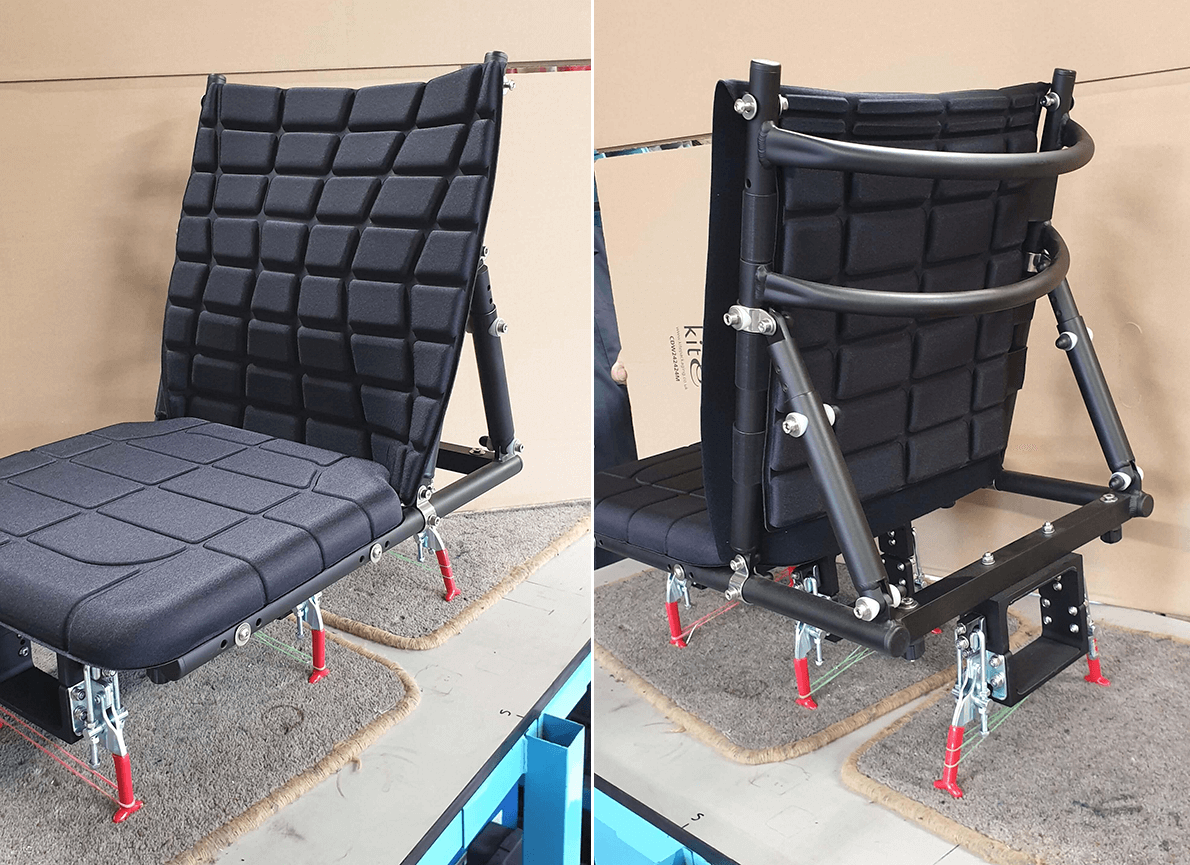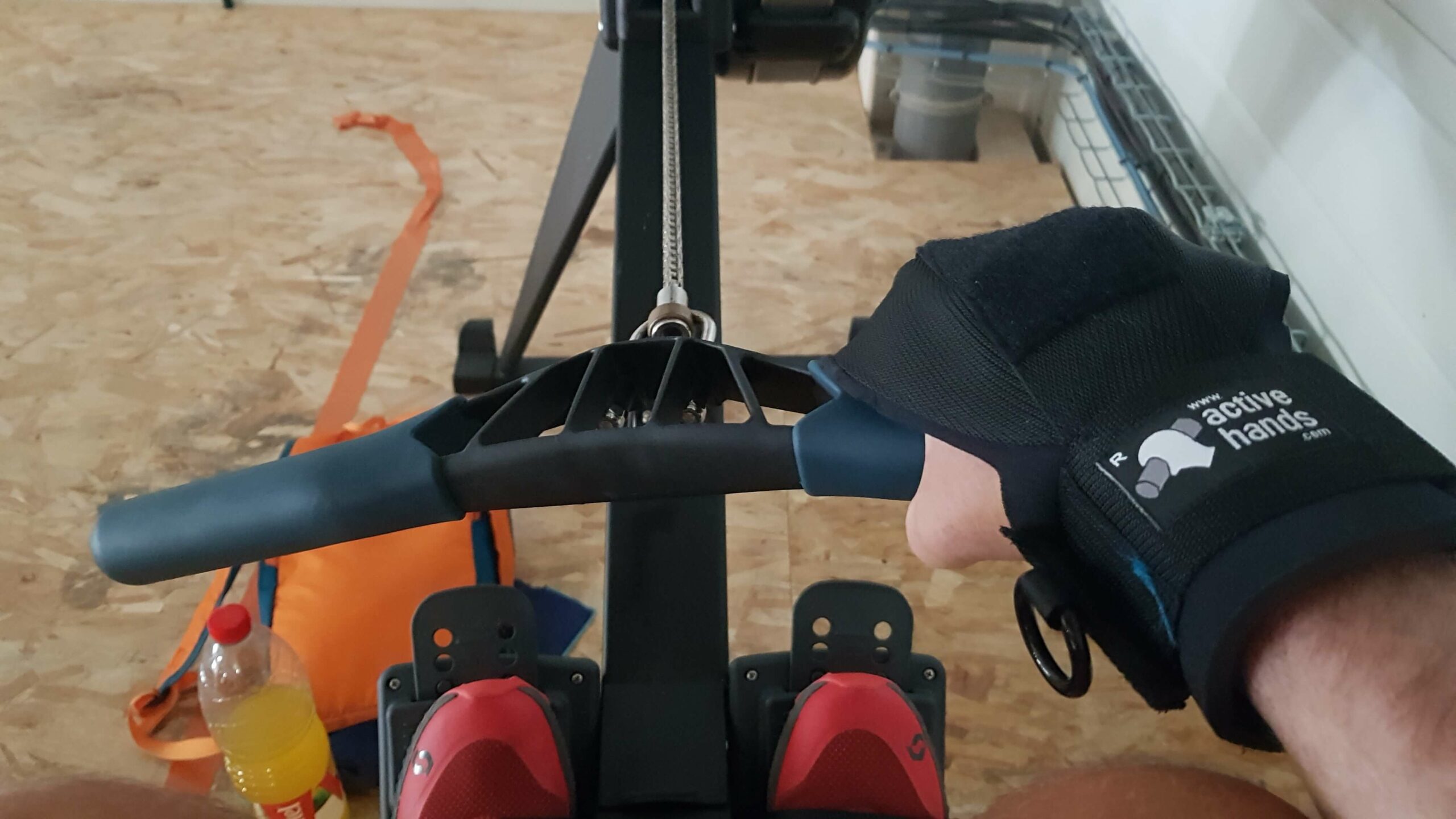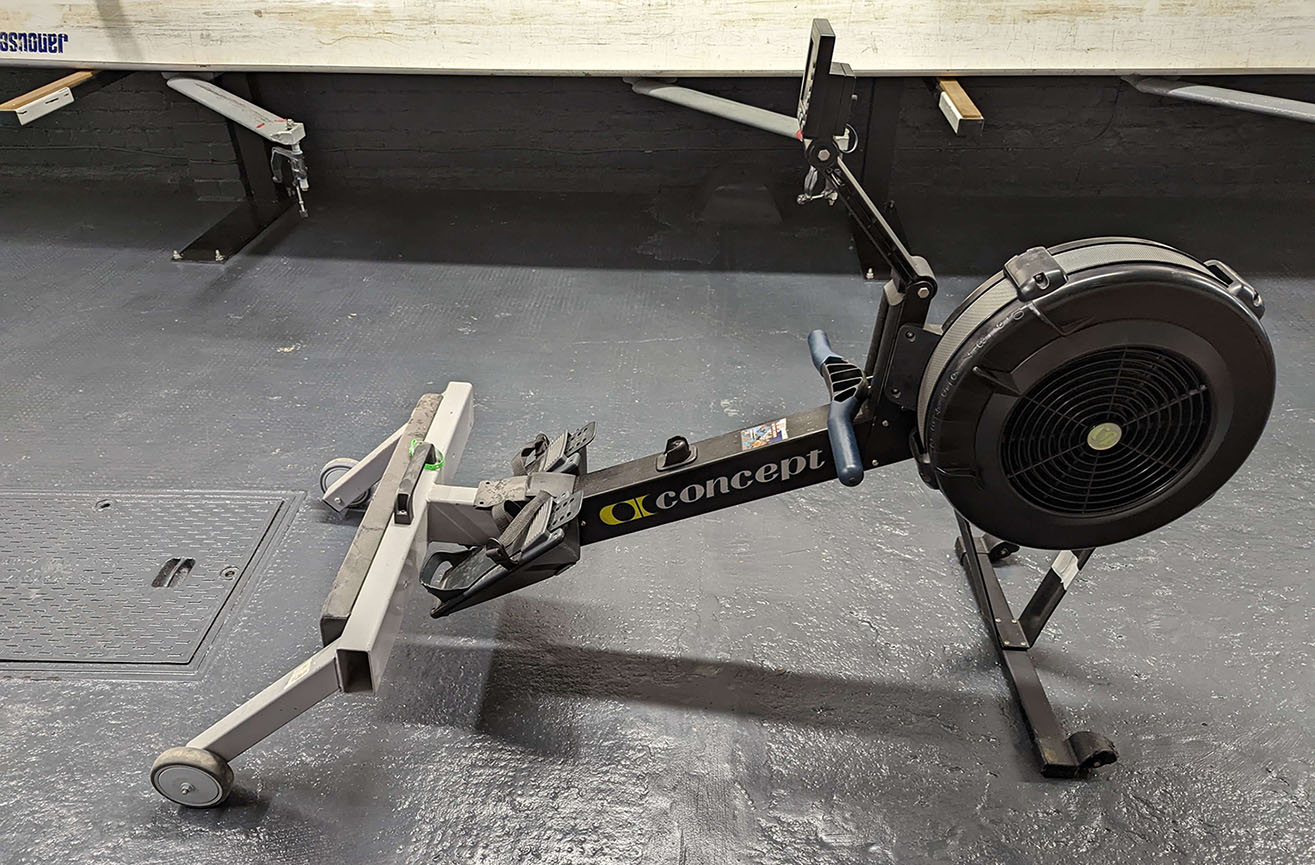Olympic silver medallist Annie Vernon asks the experts about the different ways Concept2 rowing machines can be adapted to meet the needs of those with physical impairments
Concept2 indoor rowing machines or ergos are a great training tool for rowers with additional physical needs because they are stable yet provide a full body workout, and can be adapted to meet individual requirements. It’s a simple machine with few moving parts which makes it versatile.
The only adaptation that Concept2 themselves offer is a ‘tractor seat’, which is bigger and wider than a standard seat and has a small back.
However, as the market leader for both rowing clubs and gyms, the Concept2 ergo is so widespread that various accessories designed to fit it are available from other suppliers. Several of these allow the machine to be personalised to help anyone with a disability or impairment maximise the machine for training.
Please note, though, that Concept2 states on its website that aside from its tractor seat, altering their ergos with third party products voids their warranty.
Tom Dyson, Head of Olympic and Paralympic Performance Delivery for the GB Rowing Team, is keen to stress that individual set-up is more important than additional equipment. Lots of Para-athletes don’t adapt the ergo at all.
Modified seats
Concept2’s tractor seat provides a wider, more stable base for people who like more support while rowing.
Another option for adaptive indoor rowers in the UK is a modular seat, of which Dyson is a big fan. It's been designed by Neaves, the Dorset-based rowing equipment supplier, but is not yet available on the open market. The team at Neaves are doing all they can to get it ready for general sale later in 2023. Currently it can only be used on the ergo but the aim is to make it suitable for on-water training too.
The back rest is adjustable in angle and height and Neaves are able to adapt the foam on the seat for the individual’s requirements.

NEAVES' MODULAR SEAT DESIGNED FOR THE CONCEPT2 INDOOR ROWING MACHINE
It’s also very easy to create a ‘lap belt’ for rowers without leg mobility by fastening straps to a regular ergo seat using clamps on the slide. By fastening them to the seat, they will feel more stable and secure, and therefore able to focus on getting a good upper-body workout. Wide straps across the tops of the thighs will increase stability further.
Handles
Moving to hand grips, Gym-Fit sells a rotating exercise handle, which has a central 360-degree pivot. This is designed for regular gym equipment but is suitable for indoor rowing machines. Rowers can use it to replace the Concept2 handle, either on its own or as a pair mounted at each end of a bar.
There are lots of options for those with low grip strength – something which may affect many of us as we get older. Standard weight lifting straps can be wrapped around the wrist then around the handle and tucked in under the fingers.
For people with very low grip strength, a product which locks the handle into the hands is manufactured by Active Hands. It has a thick brace around the wrists and up over the knuckles, with a Velcro strap completing the loop so that the ergo handle can be placed into the palms then fastened into position.

ACTIVE HANDS GRIPPING AID
Wheelchair users
As we all know, ergos can be split into two parts, so for wheelchair users, simply remove the rail and seat section and push the wheelchair right up against the flywheel cage. Lock your wheelchair into place and complete your upper body session without any further adaptation.
Wheelchair users ‘erging’ like this may find that the chain drags on the cage. A solution is a wheelchair frame such as the Adapt2Row shown below, that lifts the flywheel section of the machine up to stop this happening.

ADAPT2ROW WHEELCHAIR FRAME FITTED TO A CONCEPT2 INDOOR ROWING MACHINE
Like Dyson, Hannah Lawton, Sports Programme Manager at the Royal British Legion, who previously worked for the GB Rowing Team’s Para-Rowing programme, stresses that each athlete she works with has a very individual set of disabilities and thus each adaptation of the ergo is personalised. For example, some rowers who are double arm amputees might use a thick fabric strap gripped between their teeth, connected to the centre of the handle.
Lawton also recommends considering whether regular items found in every gym can be useful. If users only have mobility through one leg, for instance, it’s probably more comfortable for them to prop up the other leg on a box.
Screens
For people with visual impairments, the ergo screen can be linked to a TV screen or a tablet via Bluetooth to enlarge the display. Alternatively, apps such as ErgData from Concept2 (free) will read out the numbers in real time. can use apps to enlarge the numbers or read them out. That said, there will be times in ergo sessions when users might not want to hear their splits read to them, and I’m not sure it’s possible to bribe apps to lie!
Conclusion
Find out more about adaptive indoor rowing here or contact adaptive@britishrowing.org if you have any questions or want further advice.
DISCLAIMER: The products described in this article are intended for use in indoor rowing only and are not endorsed by British Rowing.
